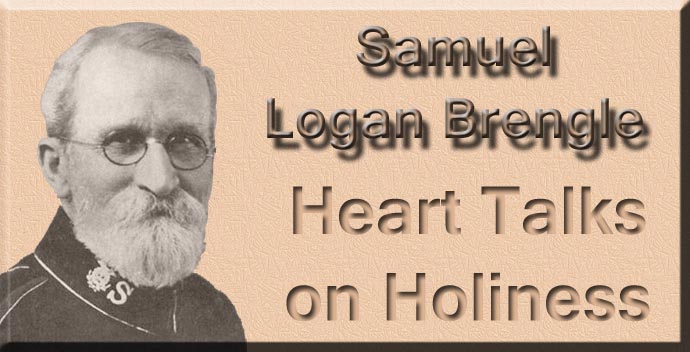FREEDOM FROM SIN
The most startling thing about sin is its power to enslave. Jesus
said, 'Whosoever committeth sin is the servant of sin' (John viii.
34), and everyday life and experience prove the saying to be true.
Let a boy or a man tell a lie and he is henceforth the servant of
falsehood unless freed by a higher power. Let the bank clerk
misappropriate funds, let the business man yield to a trick in
trade, let the young man surrender to the clamor of lust, let the
youth take an intoxicating glass, and henceforth he is a slave. The
cord that holds him may be light and silken, and he may boast
himself free, but he deceives himself; he is no longer free, he is a
bondman.
We may choose the path in life we will take; the course of conduct;
the friends with whom we will associate; the habits we will form,
whether good or bad. But, having chosen the ways of sin, we are then
swept on without further choice with a swiftness and certainty down
to hell, just as a man who chooses to go on board a ship is surely
taken to the destined harbor, however much he may wish to go
elsewhere. We choose and then we are chosen. We grasp and then we
are grasped by a power stronger than ourselves -- like the man who
takes hold of the poles of an electric battery; he grasps, but he
cannot let go at his will; like the man who took the baby
boa-constrictor and trained it to coil about him, but when grown it
crushed him; like the lion trainer, who put his head in the lion's
mouth, but one day the lion closed its mouth and crushed his head as
he might an egg-shell.
Just so the sinner is in the grasp of a higher power than his own.
He chooses drink, dancing, gambling, worldly pleasure, or human
wisdom and fame and power, but soon finds himself captive, only to
be surely crushed and ruined for ever, unless delivered by some
power outside himself. What shall he do? Is there hope? Is there a
deliverer? Yes, thank God, there is. Jesus said : 'If the Son
therefore shall make you free, ye shall be free indeed' (John viii.
36).
Some years ago, as I was passing out of a church near Boston, one
Sunday night, a young man, an artist, stopped me and said, 'Brother
Brengle, do you mean to say that Jesus can save a man from all sin?'
'Yes, sir,' I replied, ' that is exactly what I mean to say.'
Well, if He can,' said he, 'I want Him to save me, for I am the
victim of a habit that masters me. I struggle and vow and make good
resolutions, but fall again, and I want deliverance.'
I pointed him to Jesus. We prayed, and the work was done. Glory to
God! He remained in and around Boston for six months, shining and
shouting for Jesus, and then went to California. Eleven years later
I went to San Francisco. One day, I heard a knock on my door. A
young man entered, looked at me and inquired, 'Do you know me?'
I replied, ' Yes, sir; you are the young man that Jesus saved from a
bad habit about twelve years ago, near Boston.'
'Yes,' said he, 'and He saves me still.'
Whom the Son maketh free is free indeed.
He breaks the power of canceled sin
He sets the prisoner free.
This freedom is altogether complete. Jesus told the disciples to
loose a colt that was tied and bring it to Him. Mark tells us that
He loosed the tongue of a dumb man and he spake plain. John tells us
that when Lazarus came forth from the grave he was 'bound hand and
foot with grave-clothes: and his face was bound about with a napkin.
Jesus saith unto them, Loose him, and let him go' (John xi. 44).
Now John uses exactly the same Greek word when he says of Jesus,
'For this purpose the Son of God was manifested, that He might
destroy (loose) the works of the devil' (I John iii. 8).
In other words, he whom Jesus makes free is loosed from the works of
the devil -- unhitched from them -- as fully as was the colt from
the post to which it was tied, or as was Lazarus from his grave
clothes. Hallelujah! The sinner is bound to his guilty past, but
Jesus forgives and forgets it, and he is no longer subject to the
penalty of the broken law.
The converted man is bound to his inbred sin, Jesus looses him and
he is free indeed. It is a complete deliverance, a perfect liberty,
a Heavenly freedom that Jesus gives, by bringing the soul under the
law of liberty, which is the law of love.
|



 Home
Home What's New
What's New Bible
Bible Photos
Photos Hiking
Hiking E-Books
E-Books Genealogy
Genealogy Profile
Free Plug-ins You May Need
Profile
Free Plug-ins You May Need
 Get Java
Get Java.png) Get Flash
Get Flash Get 7-Zip
Get 7-Zip Get Acrobat Reader
Get Acrobat Reader Get TheWORD
Get TheWORD